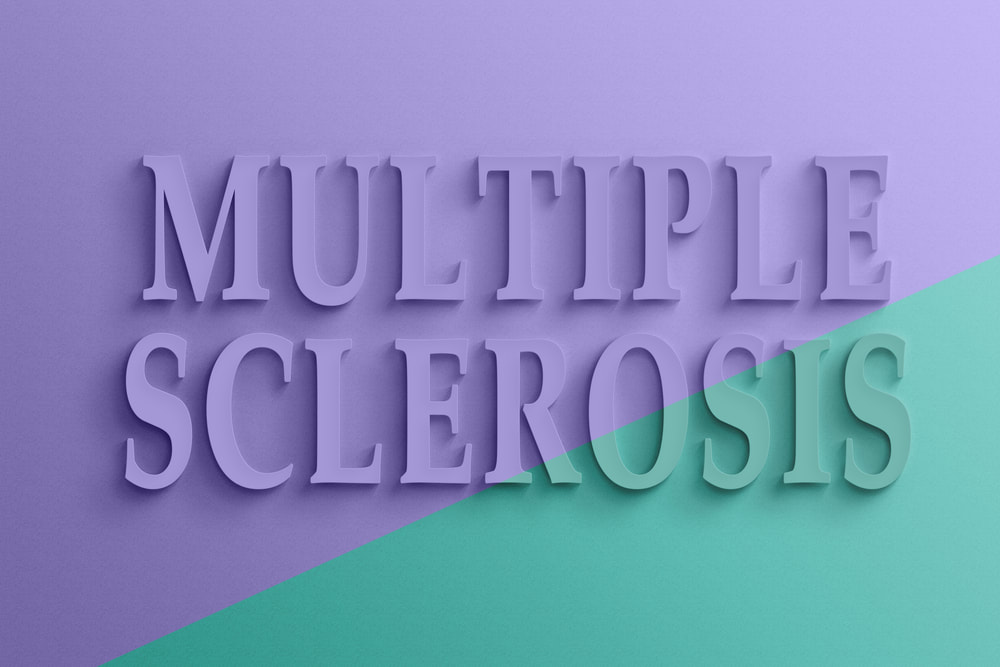Symptoms of MSSymptoms of multiple sclerosis are varied. Symptoms may also come and go. Possible symptoms include:
Possible eye complicationsAccording to the National Multiple Sclerosis Society, vision problems are often one of the first symptoms of MS. Because multiple sclerosis affects people differently, the type of eye problems may vary. The good news is many of the eye issues resolve and do not cause permanent vision loss. Some possible vision issues include: Double Vision: In some cases, people with multiple sclerosis develop double vision. It may occur because the muscles in the eyes do not work properly. It can also develop if the nerves that control the eye muscles are affected. If double vision is severe, treatment may include a Fresnel prism, which is a plastic film attached to the surface of the eyeglasses, which corrects double vision. Optic neuritis: Optic neuritis is one of the more common visual symptoms related to multiple sclerosis. It develops due to inflammation in the optic nerve. It can occur in one or both eyes. Symptoms of optic neuritis include:
Treatment usually includes high doses of steroids to decrease inflammation. In most cases, vision loss is only temporary. Internuclear ophthalmoplegia: Internuclear ophthalmoplegia involves impaired horizontal eye movements. It may involve one or both eyes, causing the inability to move the eyes together when looking to the side. The condition may resolve on its own. Some people may also have symptoms, including:
If double vision occurs with internuclear ophthalmoplegia, Botox injections sometimes are recommended. Preventing vision problems with multiple sclerosisIt is not known why some people develop multiple sclerosis, and no prevention strategies have been developed. While someone may not be able to prevent eye involvement with multiple sclerosis, they can take steps to care for their eyes, including:
Get regular eye exams: If you are newly diagnosed with multiple sclerosis, see an eye doctor for a comprehensive eye exam. Your doctor will determine how often you should come in for checkups. Follow your treatment plan: Multiple sclerosis often goes into remission, which means symptoms resolve. Treatment may involve a combination of medication, physical therapy, and healthy lifestyle choices. Although there is currently no cure for multiple sclerosis, treatment can help reduce symptoms and improve quality of life. Following your treatment plan may also prevent further eye complications. Rest your eyes: If you develop vision problems, such as blurred or double vision, try to take breaks and rest your eyes. Everyday activities, such as staring at a computer screen can leave your eyes tired, which may make blurry vision worse. Discuss changes as soon as possible: If you develop any vision changes, talk with your doctor. Not all vision problems may be caused by multiple sclerosis. Other common eye diseases can also develop in people with MS. If you have multiple sclerosis and want more information on how to prevent or reduce your risk of eye problems, we are happy to answer your questions. Also, if you would like to ask whether an appointment with one of our eye doctors would be appropriate at this time, call our office at 508-746-8600. Comments are closed.
|
EYE HEALTH BLOGCategories
All
Archives
July 2024
|
|
Kadrmas Eye Care New England
55 Commerce Way, Plymouth, MA 02360
14 Tobey Road, Wareham, MA 02571 133 Falmouth Road (Rt 28), Mashpee, MA 02649 |
Phone Number:
1-508-746-8600 Hours: Monday through Friday — 8 AM – 4:30 PM |


 RSS Feed
RSS Feed
